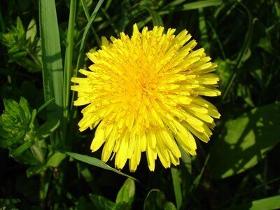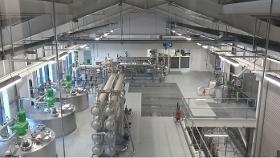- europages
- >
- COMPANIES - SUPPLIERS - SERVICE PROVIDERS
- >
- chemical processing
Results for
Chemical processing - Import export

BUDJAK LTD
Bulgaria
Dandelion CO2 Extract (Taraxacum officinale) CO2 extraction, also known as supercritical carbon dioxide extraction, is a process for extracting useful substances from plants or other raw materials using supercritical (critical point) carbon dioxide as a solvent. When carbon dioxide is heated and pressurized to a specific point, it becomes supercritical, meaning it is in both the liquid and gas phases at the same time. In this supercritical state, CO2 can use its unique properties to extract various compounds from plants. The CO2 extraction process is widely used in the food, cosmetic, pharmaceutical and other industries. It is the preferred method for extracting active ingredients, such as essential oils, flavonoids, terpenes and other beneficial substances from plants, because it does not leave solvent residues and does not lead to degradation of the ingredients due to high temperature or chemical processes.
Request for a quote
BUDJAK LTD
Bulgaria
Arnica CO2 extract (Arnica montana) CO2 extraction, also known as supercritical carbon dioxide extraction, is a process for extracting useful substances from plants or other raw materials using supercritical (critical point) carbon dioxide as a solvent. When carbon dioxide is heated and pressurized to a specific point, it becomes supercritical, meaning it is in both the liquid and gas phases at the same time. In this supercritical state, CO2 can use its unique properties to extract various compounds from plants. The CO2 extraction process is widely used in the food, cosmetic, pharmaceutical and other industries. It is the preferred method for extracting active ingredients, such as essential oils, flavonoids, terpenes and other beneficial substances from plants, because it does not leave solvent residues and does not lead to degradation of the ingredients due to high temperature or chemical processes.
Request for a quote
BUDJAK LTD
Bulgaria
Acacia CO2 extract (Robinia pseudoacacia) CO2 extraction, also known as supercritical carbon dioxide extraction, is a process for extracting useful substances from plants or other raw materials using supercritical (critical point) carbon dioxide as a solvent. When carbon dioxide is heated and pressurized to a specific point, it becomes supercritical, meaning it is in both the liquid and gas phases at the same time. In this supercritical state, CO2 can use its unique properties to extract various compounds from plants. The CO2 extraction process is widely used in the food, cosmetic, pharmaceutical and other industries. It is the preferred method for extracting active ingredients, such as essential oils, flavonoids, terpenes and other beneficial substances from plants, because it does not leave solvent residues and does not lead to degradation of the ingredients due to high temperature or chemical processes.
Request for a quote
BUDJAK LTD
Bulgaria
White Wormwood CO2 Extract (Artemisia Absinthium) CO2 extraction, also known as supercritical carbon dioxide extraction, is a process for extracting useful substances from plants or other raw materials using supercritical (critical point) carbon dioxide as a solvent. When carbon dioxide is heated and pressurized to a specific point, it becomes supercritical, meaning it is in both the liquid and gas phases at the same time. In this supercritical state, CO2 can use its unique properties to extract various compounds from plants. The CO2 extraction process is widely used in the food, cosmetic, pharmaceutical and other industries. It is the preferred method for extracting active ingredients, such as essential oils, flavonoids, terpenes and other beneficial substances from plants, because it does not leave solvent residues and does not lead to degradation of the ingredients due to high temperature or chemical processes.
Request for a quote
JADAM
Portugal
Formaldehyde is a colorless, strong-smelling, flammable organic chemical with chemical formula CH2O it is produced industrially and used in building materials such as particleboard, plywood, and other pressed-wood products also it is used as a fungicide, germicide, and disinfectant, and as a preservative in mortuaries and medical laboratories It is produced naturally during the decay of plant material in the soil and during normal chemical processes in most living organisms, it is also a combustion product found in tobacco smoke. Industries: Household chemicals, fertilizers, adhesives, oils, greases, horticulture, feed industry, plastic industry, resins and textile industry Properties: CAS number 50-00-0 (36-50%) WE number 200-001-8 (36-50%) Index number 605-001-00-5 (35-50%) Chemical formula CH2O Customs tariff code 29121100 ADR UN2209 pH 3-4 Melting / freezing point ~100°C Boiling point / range 64–85°C Relative density 1,090–1,150 g/cm3 @20°C
Request for a quoteDo you sell or make similar products?
Sign up to europages and have your products listed

OSMO MEMBRANE SYSTEMS GMBH
Germany
Boiler feed water The so called „Boiler feed water“ is stored in a feed water tank and continuously feeded to the boiler of a steam generator. A big quantity of feed water is needed for example in steam power plants. The boiler generates steam, which is used for heating, for chemical processes or for driving a steam turbine respectively a steam engine. The feed water is purified in a way, that all harmfull components for the boiler are removed or neutralized. Leakages and evaporation loss are compensated by additional water which is purified in the same way than boiler feed water. Very often, valuable well and potable water resources are used for the generation of process water. Environmental regulations restrict this usage of well and potable water continuously and increase the costs for this resources steadily. The conditioning of stream water to boiler feed water helps saving potable water and means cost advantages. The process of conditioning is based on ultra filtration with down
Request for a quote
PRAGMA BUYING SRLS
Italy
Continuous stainless steel plants for ethanol dehydration by a physical / chemical process called adsorption. In this process water molecules are trapped on the surface of adsorbing solid, called molecular sieve, removing water from the mixture to be dehydrated. During the adsorption process molecular sieves tend to become saturated, that means, in order to restore their dehydration capabilities, after the absorption phase a regenerative one must be carried out.
Request for a quoteResults for
Chemical processing - Import exportNumber of results
8 ProductsCompany type